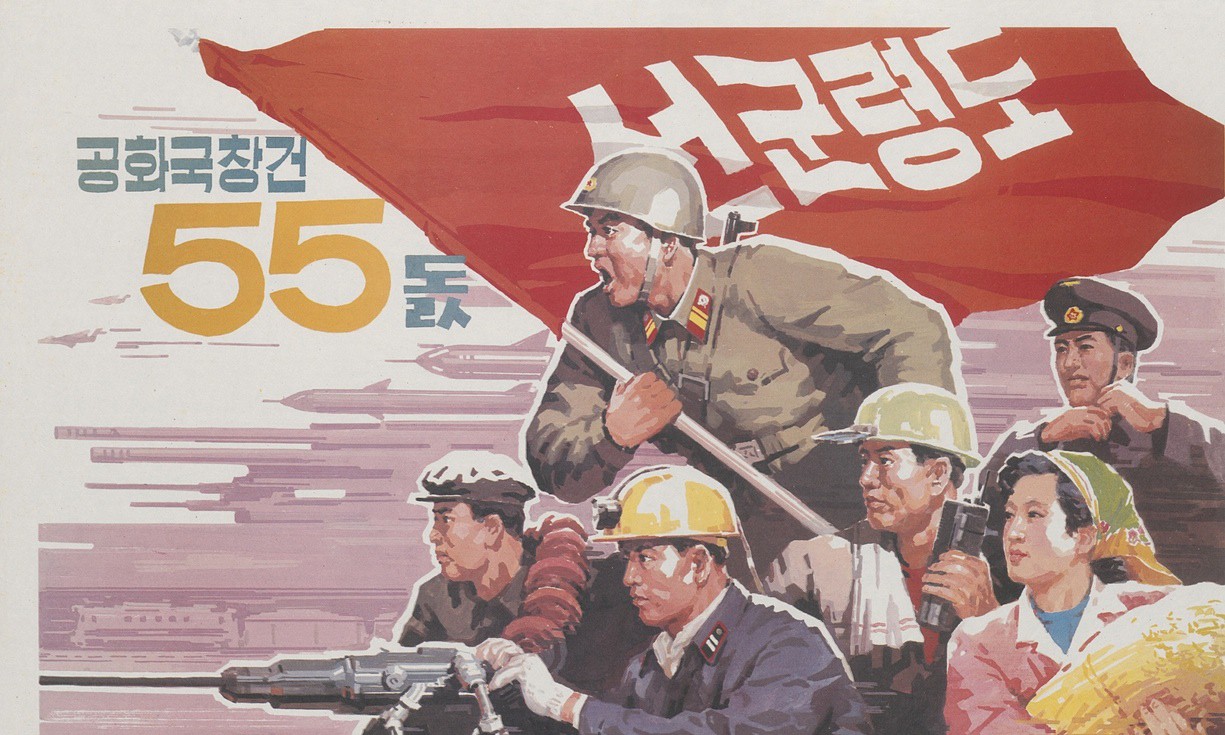Friday morning, at 9:30am local time, international organizations recorded at magnitude 5.3 earthquake at the nuclear testing site of Punggye-ri in North Korea. The earthquake was reported at a depth of 0.0km (USGS). Artifical origin was quickly speculated; Yonhap ran an article quoting the South Korean Joint Chiefs of Staff claiming artificial origin within an hour of the test (Yonhap). All the early information led many in the international community to speculate North Korea had conducted its fifth, and strongest, nuclear test. Hours passed before North Korea commented on what was happening at the nuclear testing site.
Throughout the day, as the international community sat idle, North Korea refused to comment. No comment was made during its noon news broadcast (Guardian Live Blog). A few hours after the test, North Korea did release a statement. “Scientists and technicians carried out a nuclear explosion test for the judgement of the power of a nuclear warhead newly studied,” the statement opened (KCNA*). “The standardization of the nuclear warhead will enable the DPRK to produce at will and as many as it wants a variety of smaller, lighter and diversified nuclear warheads,” it continued. “This has definitely put on a higher level the DPRK’s technology of mounting nuclear warheads on ballistic missiles.” The statement concluded by saying the test, and the broader nuclear program, are a necessity in deterring the hostile American forces. Though this rhetoric is nothing new, it is clear North Korea has made drastic advancements in its nuclear program and may be ready to pursue deployment of nuclear-tipped missiles (NY Times*).
South Korea quickly responded to the news of North Korea’s nuclear test. After news of the earthquake started to circulate, Park Guen-hae, South Korea’s President, held an emergency meeting with aides while Laos and cut her trip short. She also had strong words of condemnation. “This clearly reaffirmed the North Korean regime’s reckless and its obsession with nuclear arms” (Korea Herald). She also called Kim Jung-un “uncontrollable” in comments about the test (Yonhap). The South Korean government also quickly sprang into action; South Korea’s National Assembly Convened an emergency meeting to discuss the nuclear test, despite the Chusok holiday (Yonhap). South Korean officials have also vowed to seek, at all costs, stronger sanctions from the United Nations Security Council (Korea Times).
While South Korean politicians are debating the nuclear test and how to best respond, the South Korean public was relatively at ease. North Korea’s nuclear test did not even crack the top ten most searched terms on Naver (Korea Times). Many South Koreans do not fear North Korea’s nuclear advancements simply because North Korea already has the ability to cripple South Korea through conventional means.
Though South Korea took strong action, Japan was the first to condemn the test. In a statement, Prime Minister Shinzo Abe said, “Japan reiterates its strong demand for North Korea to implement the relevant UNSCRs and to take concrete action towards comprehensively resolving outstanding issues of concern, including the abductions, nuclear and missile issues” (Japanese Foreign Ministry). China also expressed its firm opposition to the test and would lodge a diplomatic protest with North Korea’s Beijing Embassy (Reuters; ABC News).
While Asian leaders expressed grave concern over the test, condemnation of North Korea spread through the world. The White House released a statement saying “the United States condemns North Korea’s September 9 nuclear test in the strongest possible terms” (White House Statement). It continued by saying, “the United States does not, and never will, accept North Korea as a nuclear state” (White House Statement). Other nations, such as France and Pakistan, have strongly opposed North Korea’s fifth nuclear test as well (Radio Free Asia).
United Nations Secretary-General Ban Ki-moon, in a statement outside of the UN headquarters, said “I condemn in the strongest possible terms the underground nuclear test by the Democratic People’s Republic of Korea,” and also called the test “another brazen breach of resolutions of the Security Council” (UN Office of the Secretary-General). Later, the UN Security Council strongly condemned the test in an emergency closed-door meeting (ABC News). Currently, there has only been condemnation from the United Nations, though it is highly possible the Security Council will levy new sanctions on North Korea in the coming months; the international community is calling for stronger sanctions from the UN.
Currently, yesterday’s test is still sinking in. Strong words of condemnation have come from across the globe, though this is normal following a nuclear test. North Korea’s fifth test also comes at a time when the politics on and surrounding the peninsula are moving rapidly; North Korea, outside of this test, has shown major advancements in its SLBM and medium range ballistic missile technology and South Korea announced the deployment of THAAD in Seongju Province. This test will complicate the situation on the peninsula. For example, China’s strong opposition to THAAD will make it easier for North Korea to act provocatively, but Beijing also strongly opposes North Korea’s nuclear program. World leaders will also have to examine the complex webs of intentions around the peninsula to ensure the strongest response is enacted as quickly as possible. New sanctions, in the form of a UNSC resolution, are likely to be levied against the regime, but the world will have to start exploring a new strategy to choke the nuclear program, since sanctions are having, at best, little influence on the regime.
*Due to complications of linking to articles on this site, and because I do not wish for people to visit such sites without proper knowledge of North Korea, I have not included a link to this article. There are a variety of ways to view this statement if one wishes to read the entire text on their own accord. The NY Times article is a thorough examination of the statement.
